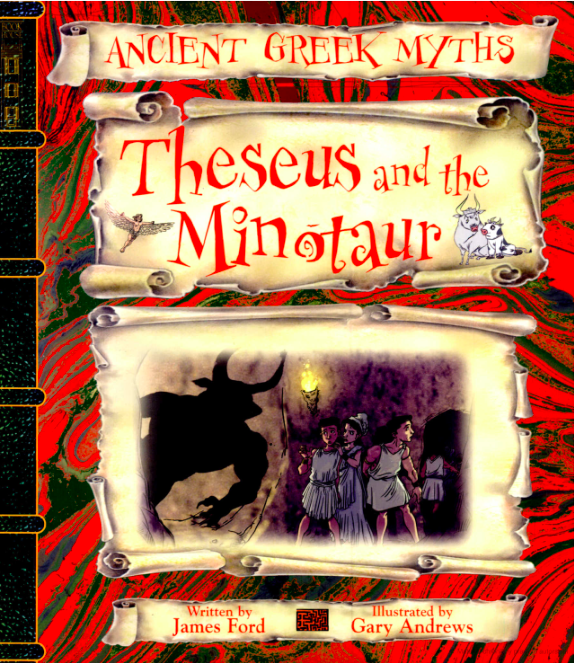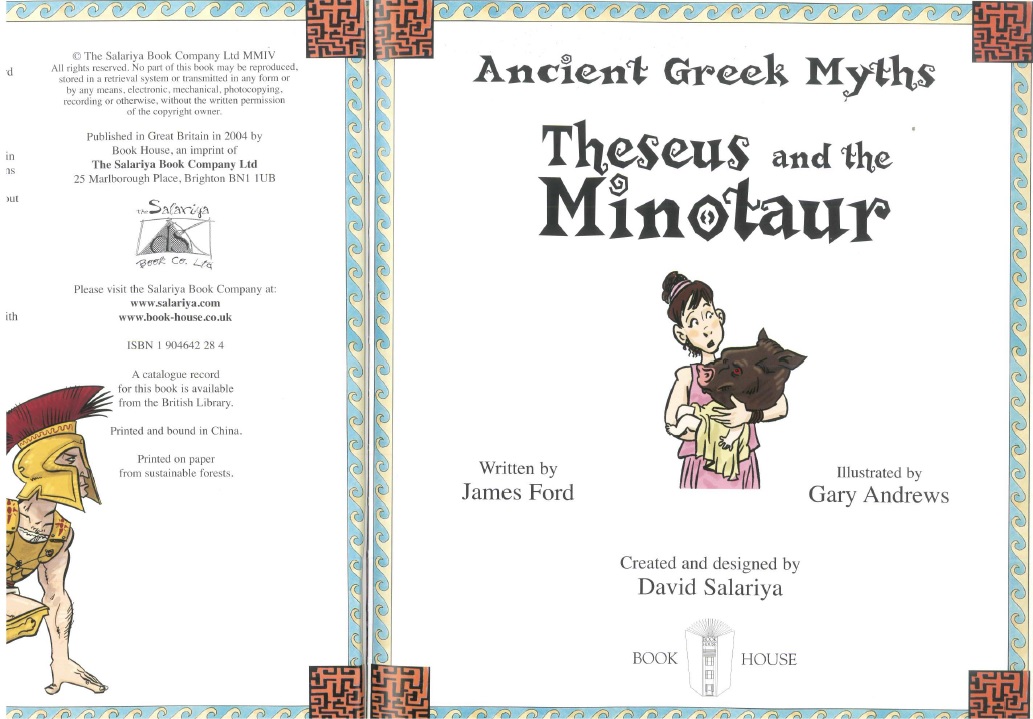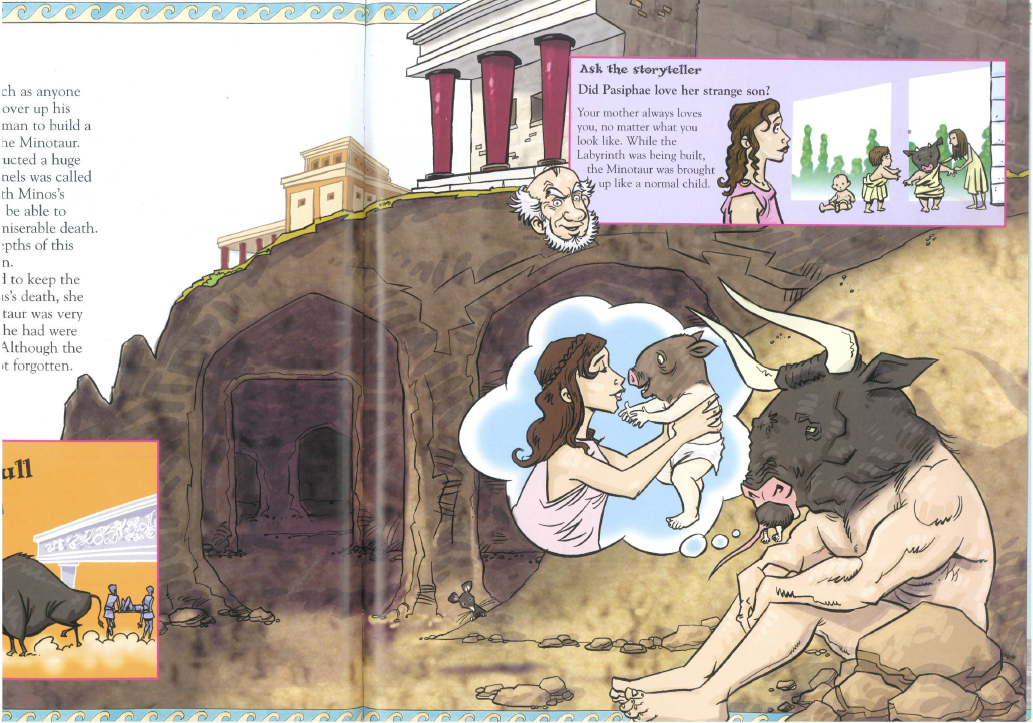Title of the work
Country of the First Edition
Country/countries of popularity
Original Language
First Edition Date
First Edition Details
Script by James Ford, ill. and cover design Gary Andrews, Theseus and the Minotaur, Ancient Greek Myths. Brighton: Salariya Book Company Book House, 2004, 32 pp.
Genre
Humor
Illustrated works
Instructional and educational works
Myths
Target Audience
Children
Cover

Courtesy of The Salariya Book Company.
Author of the Entry:
Viktoryia Bartsevich, University of Warsaw, v.bartsevich@student.uw.edu.pl
Peer-reviewer of the Entry:
Elżbieta Olechowska, University of Warsaw, elzbieta.olechowska@gmail.com
Susan Deacy, University of Roehampton, s.deacy@roehampton.ac.uk

Gary Andrews (Illustrator)
In 1983 Gary Andrews graduated from Exeter College of Art in Exeter, England. Andrews is an illustrator of children books. His passion is animation, he is also interested in movie production.
Source:
The cover of the book Theseus and the Minotaur.
Bio prepared by Viktoryia Bartsevich, University of Warsaw, v.bartsevich@student.uw.edu.pl

James Evelyn Ford
, b. 1943
(Author)
James Ford studied English and Classical philology. He lives in Brighton, England. He is also a publisher. His books inspired by Greek mythology include as well The Twelve Labours of Hercules (2004) and Ancient Greek Myths: Bind Up (2008).
Source:
Bio based on the cover of the book Theseus and the Minotaur.
Bio prepared by Viktoryia Bartsevich, University of Warsaw, v.bartsevich@student.uw.edu.pl

David Salariya
, b. 1954
(Illustrator)
David Salariya was born in 1954 in Dundee, Scotland. He is the founder of Salariya Book Company. David Salariya is an illustrator. His first illustration was done for Reader’s Digest.
Source:
Interview at the creativeinterviews.com (accessed: April 17, 2018).
Interview at the childrensillustrators.com (accessed: April 17, 2018).
Bio prepared by Elżbieta Olechowska, University of Warsaw, elzbieta.olechowska@gmail.com and Viktoryia Bartsevich, University of Warsaw, v.bartsevich@student.uw.edu.pl
Translation
Polish: Tezeusz i Minotaur, Janusz Ochab, trans. Warszawa: Firma Księgarska Jacek i Krzysztof Olesiejuk Inwestycje, 2005.
Summary
The author tells the myth about Theseus and the Minotaur. At the beginning, readers learn how the half bull half man was born. Later on, the story is told of the murder of Androgeos, son of Minos and Pasiphae: his death was the reason why Minos declared war on Athens. Subsequently, the reader learns about Poseidon’s revenge – the birth of the Minotaur. Minos asked Daedalus to build a maze under his castle, where he wanted to imprison the monster. Minos demanded that the Athenians in reparations for Androgeos’ murder send him every nine years a tribute of seven young girls and seven young men. The young people were killed and devoured by the Minotaur. Later the author introduces the character of Theseus who slew the monster and seduced the daughter of Minos – Ariadne. The character of Medea appears in the book, as the evil stepmother of Theseus. Still another story describes the fates of Daedalus and Icarus.
The book is designed to present and explain topics which are important for the whole myth. For instance, the illustrations show what happened to Ariadne, when Theseus abandoned her on the island; what role he played after the death of the Minotaur; why Daedalus was on Crete; what was the Delphic oracle; who were the parents of Minos.
Analysis
This book about the myth of Theseus and the Minotaur. The illustrations are funny and enjoyable. Facial features and body structure are appropriate to characters. For example, Theseus is drawn as an athletic, handsome young man, Medea as a cruel woman with sharp facial features and so on. The illustrations also contain comic elements in the form of dialogues inserted in clouds. The Cretan myths obviously must contain a certain degree of violence, but both the author and the illustrator of Theseus and the Minotaur do not emphasize these aspects, making the book suitable for small children.
Addenda
Illustrations:


Courtesy of The Salariya Book Company.


